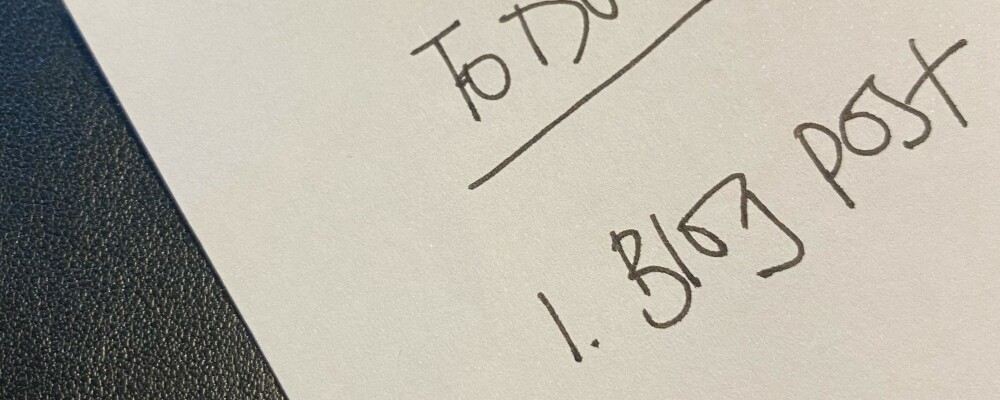Tackling the thing that you're dreading...
This week I came across the concept of the “ugh field”. The fact I did so when browsing social media instead of tackling the already perilously overdue piece of drafting sitting on my desk is, as you will see, a rather shaming irony.
We’ve all experienced the conditions in which an ugh field can develop. That task on your to do list that makes you shudder when you read it, so you move it back to the bottom. Over time, the task becomes more and more unpleasant every you time contemplate starting it – perhaps you can no longer quite remember what it was your colleague asked you to do; maybe you worry that delivering the task late is going to trigger an embarrassing exchange with the recipient. Every time you contemplate the task, you shudder and move on to the next, less gut wrenching, job.
You are on the way to the creation of an ugh field. Over time, your brain learns to associate contemplating the task with negative feelings. Your mental association with the task becomes not the task itself but the flinch of discomfort that comes from even contemplating it.
Your brain doesn’t like that – it tries hard to prevent such feelings, for good, self preservational reasons. To avoid such feelings, your brain will seek ways to prevent the task even entering your conscious thought process. Thus an ugh field is created – “a self-shadowing blind spot covering an area desperately in need of optimization, imposing huge costs.”
This, it is suggested, is a natural, pre-conscious brain process which we can all fall prey to. Among the various creative solutions suggested to avoid the creation of ugh fields, one which struck me as particularly attractive is to recognise early that a task is inexorably sliding into an ugh field and get rid of it. Send an email back to your boss or colleague: “Sorry, I can see already that I am not going to be able to deliver this task on the timescale required – is there anyone else who can take it on?”. But that requires the sort of workplace culture that we all strive for but, in truth, probably fail to deliver.
All but the lucky few will recognise the ugh field within their professional life. But the same brain processes apply just as much to personal issues. This got me thinking about our clients.
For many, making contact with a lawyer to discuss relationship breakdown is precisely the sort of task which provokes negative, “flinch” responses. That might simply be because it involves acknowledging the breakdown to a third party for the first time. It might be the fear that by doing so you are starting a chain of events over which you will quickly lose control. Or it may be worry over the financial consequences. It’s not hard to see how making contact with a divorce lawyer might be something which you create an ugh field around. And this is a task uniquely ill suited to the “is there anyone else who can take this on?” solution.
It’s easy to forget when you take that first call from a new client that it may represent, for them, not the beginning of a process, but the completion of a task which has taken a huge toll on their resources to accomplish. Our clients are subject to the same human processes as we are. And the task they have completed picking up the phone to you makes your horrible drafting exercise a minor inconvenience in comparison. Understanding that helps us respond constructively and sympathetically.
The same might apply to the “to do lists” we sometimes give our clients. Yes, we need that information to do our job – but are there more creative or sympathetic ways to approach the information gathering process that might avoid creating ugh fields for our clients and help us get the information we need, when we need it? That’s something to add to my own to do list for next week…

